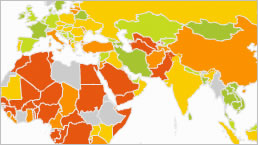This Issues Paper was prepared for the first annual GPFI Conference on Standard-Setting Bodies and Financial Inclusion hosted by the Financial Stability Institute at the Bank for International Settlements in Basel on October 29, 2012. Both the ramifications of standard-setting bodies’ (SSBs) standards and guidance for financial inclusion and the ramifications of financial inclusion for the work of the SSBs are explored in this Issues Paper. It outlines the state of the current engagement and recent activities on issues of financial inclusion taken by five global standard-setting bodies: the Basel Committee on Banking Supervision, the Committee on Payment and Settlement Systems, the Financial Action Task Force, the International Association of Deposit Insurers and the International Association of Insurance Supervisors. The SSBs have all recognized and in recent years paid increased attention to the importance of financial inclusion. For the SSBs, addressing the goal of full financial inclusion represents an adjustment in focus and requires a commensurate evolution in thinking. The SSBs are at different stages in this evolution.
Download File(s):
This paper outlines three themes of importance for SSBs in considering the process of financial inclusion: financial exclusion carries risks; increasing financial inclusion will change the nature (and potentially also the level) of risks; and the country context in which SSB standards and guidance are applied matters to the practical feasibility of their application.
The paper highlights the application of the proportionality principle – the balancing of risks and benefits against the costs of regulation and supervision – as an essential means for addressing these themes, both in the standards and guidance of the SSBs and in their country-level implementation.


